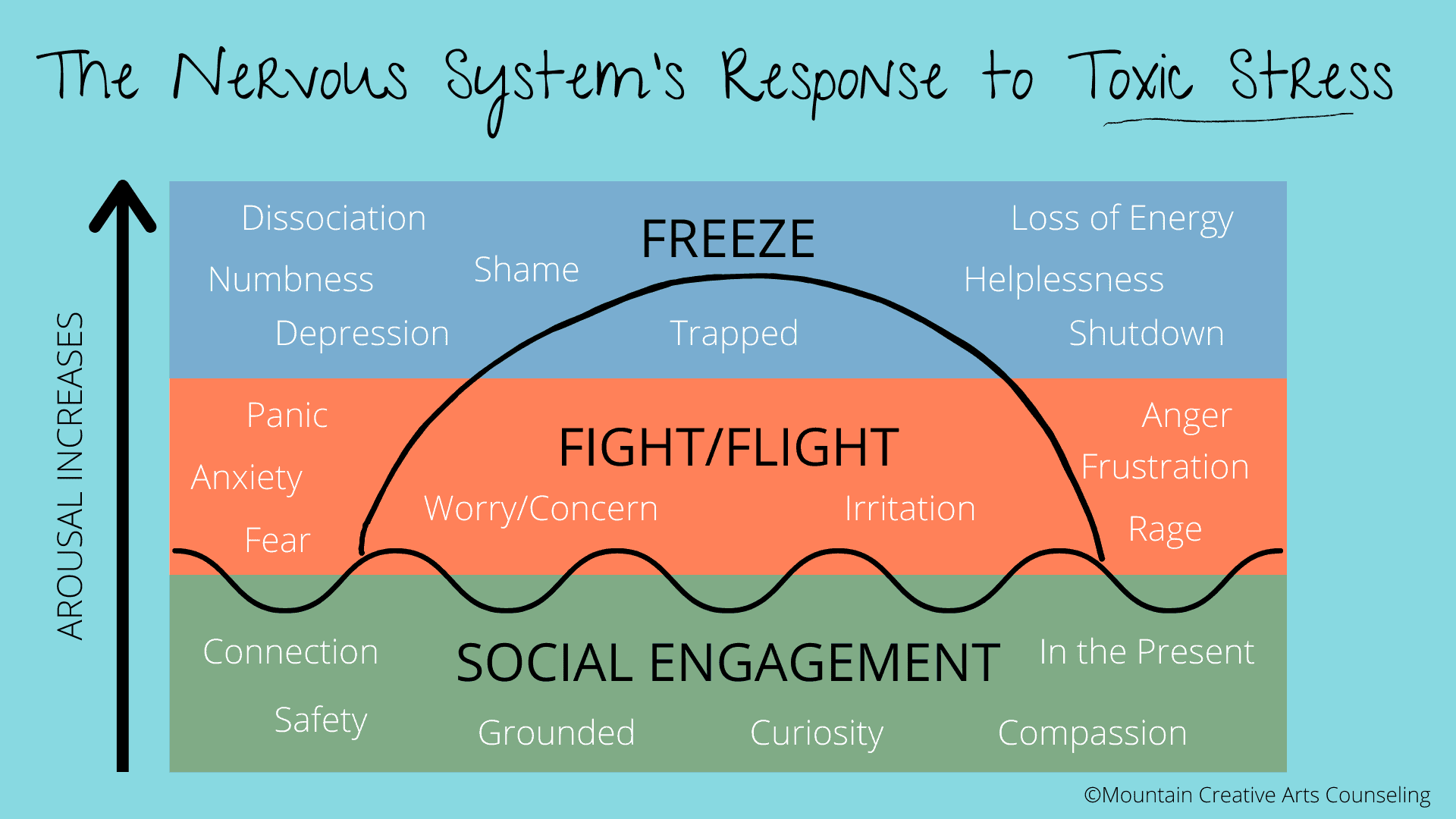In my previous post, I shared about the categories or types of traumatic events. In this post, I will share more about the effects of trauma on our nervous systems.
The Stress Response
The following diagram illustrates how our nervous systems respond to stress, including traumatic events. When we are feeling calm and grounded, we are in the “Social Engagement” mode of being. We have greater capacity to feel joy, connection, curiosity, and empowerment.
As the stressors increase, and we move outside our window of tolerance, the “fight/flight” mode of our sympathetic nervous system activates. We may then experience increasing levels or anxiety or frustration.
If the stressors persist, we enter a “freeze.” This is a protective response which disconnects us from others, from ourselves, and from the overwhelming emotions of “fight/flight”. There is a sense of helplessness or stuckness in “freeze”. It is difficult to experience connection and joy in this “freeze” state.

Feeling Stuck
A healthy nervous system is able to move into “fight/flight” as the activation increases. It can also move out of “fight/flight” and back into “social engagement” as the activation decreases. Healthy nervous systems can enter “freeze” when there is significant threat to our safety. Healthy nervous systems can also move out of “freeze” when the threat is removed.
Feeling stuck in “fight/flight” or “freeze” is a sign that we have been impacted by trauma. The result of being stuck in these modes and the ways we adapt to being stuck leads to the constellation of symptoms found in PTSD and Complex PTSD.
Signs of Healing
The effects of trauma don’t have to be lifelong. As we start to heal, our nervous systems regain the ability to achieve balance and rest. Other signs of healing include:
● We will be able to feel relaxed and at ease
● Our bodies and our senses will be relaxed, yet alert
● We will be embodied, present through all layers of self (physical, emotional, psychological, spiritual)
● We will be available for connection and will be emotionally stable
● We will experience that we have choices and options
● We will have a capacity for healthy relationships
About the Author

Kara Ashley-Gilmore believes in the use of our innate creativity for our wellness and healing. She is a Licensed Clinical Mental Health Counselor, Registered Art Therapist, Somatic Experiencing Practitioner-in-Training, and a mixed-media artist at Mountain Creative Arts Counseling, in Hendersonville, NC. She provides individual and group psychotherapy and with individuals who feel crushed by the weight of their worries, dread their next panic attack, and live with overactive inner critics. Learn more about her work at www.mountaincreativearts.com.
